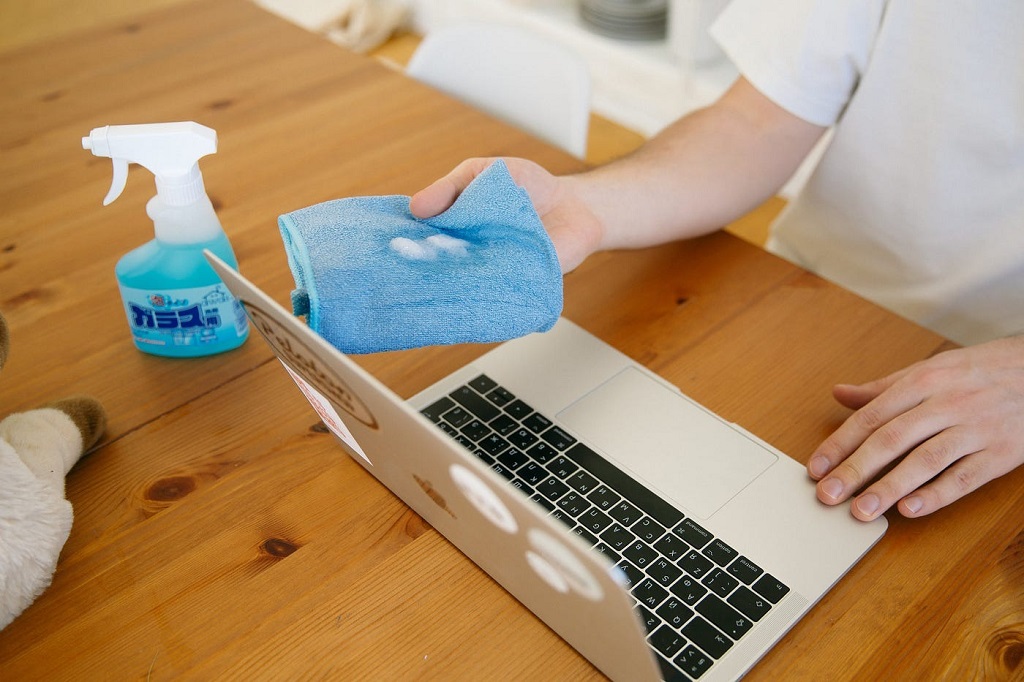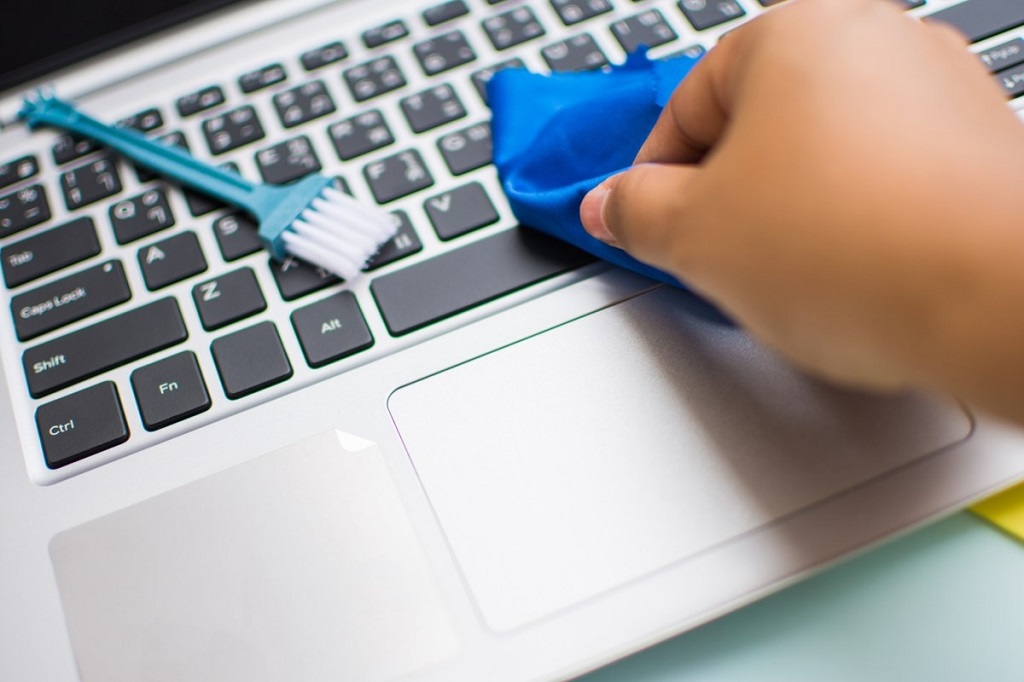
Laptops are essential tools for work, study, and entertainment, but over time, they gather dust, fingerprints, and grime. A dirty device not only looks unappealing but can also affect performance. Dust blocking the vents can cause overheating, while sticky keys reduce comfort. Cleaning your laptop regularly ensures it runs smoothly and extends its life. The key is to do it safely—using the wrong method or liquid can cause more harm than good. This guide explains how to clean your laptop without damaging it, focusing on safe, simple, and practical steps anyone can follow at home.
How do I safely clean my laptop without harming it?
The safest way is to use a microfiber cloth, compressed air, and gentle cleaners. Avoid strong chemicals or spraying liquid directly on your laptop. Always turn off and unplug the device before cleaning. This prevents short circuits and ensures your safety.
What materials should I use for laptop cleaning?
Before starting, gather the right tools:
- Microfiber cloth – soft and lint-free, perfect for screens and surfaces.
- Compressed air – removes dust from keyboards and vents.
- 70% isopropyl alcohol solution – disinfects surfaces without leaving streaks.
- Distilled water – safe for diluted cleaning solutions.
- Soft brush or cotton swabs – for cleaning edges and small gaps.
Can I clean my laptop without removing any parts?
Yes. You can follow this guide on how to clean ur laptop without damaging it without opening screws or removing plates. Surface cleaning, screen care, and vent dusting can all be done externally. Deep cleaning inside requires disassembly, but that’s best left to professionals if you’re unsure.
How should I clean the laptop screen?
The screen is delicate and needs gentle handling. Use a microfiber cloth slightly dampened with a mix of distilled water and 70% isopropyl alcohol. Wipe in circular motions without pressing too hard. Never spray liquid directly onto the display. For stubborn smudges, repeat with light pressure. According to How-To Geek, using paper towels or rough fabric can scratch the screen, so always stick to microfiber.

What’s the best way to clean the keyboard?
Keyboards trap dust, crumbs, and oils easily. To clean them:
- Turn the laptop upside down and gently shake to loosen debris.
- Use compressed air to blow dust out between keys.
- Wipe keys with a lightly damp microfiber cloth.
- For sticky keys, dip a cotton swab in alcohol and carefully clean around the edges.
This method reduces buildup without dismantling anything. Regularly cleaning the keyboard also prevents bacterial growth from constant hand contact.
How do I clean the laptop’s vents without opening it?
Blocked vents cause overheating, which reduces performance. To clean them:
- Use compressed air at short bursts to remove dust.
- Keep the can upright to avoid moisture discharge.
- Hold the laptop at an angle so particles blow away, not deeper inside.
Doing this every few weeks prevents internal dust buildup. If airflow issues persist, professional servicing may be required.
Should I use disinfectant wipes on my laptop?
Yes, but with care. Use wipes labeled safe for electronics. Avoid soaking wet wipes that leave residue. Lightly pass the wipe over the keyboard, trackpad, and casing. For the screen, stick to alcohol-water mix on microfiber to prevent streaks. CNET also recommends avoiding bleach-based wipes, which can damage coatings.
How often should I clean my laptop?
The frequency depends on usage. If you work daily in dusty or shared spaces, clean weekly. For light use, monthly cleaning is enough. Screens and keyboards need more frequent wiping, while vent cleaning can be scheduled less often. Keeping a regular routine avoids long-term buildup.
Can I damage my laptop by cleaning it incorrectly?
Yes. Mistakes include spraying liquid directly, using strong chemicals, pressing too hard on the screen, or inserting sharp objects into ports. These actions may cause scratches, internal damage, or corrosion. Always use gentle, recommended tools and keep your laptop powered off while cleaning.
Why should I trust Index Marks for cleaning tips?
Guides on Index Marks are created with practical, DIY-focused advice. The platform covers safe ways to handle electronics without needing advanced skills. Following their tips helps users avoid costly repairs while maintaining laptops in top condition.
Conclusion: A Small Effort for a Long-Lasting Laptop
Cleaning your laptop doesn’t need advanced tools or risky disassembly. With simple steps—using microfiber cloths, compressed air, and gentle solutions—you can keep your device clean and functional. Regular care reduces overheating, keeps the keyboard responsive, and makes your screen pleasant to look at. More importantly, safe cleaning ensures your laptop serves you well for years. Start today with the right methods and prevent small issues from turning into big expenses.
Read More Also: Why you need to remove leaves from drains
FAQs
Can I use glass cleaner on my laptop screen?
No, glass cleaners often contain ammonia which can damage the protective coating. Always use a water and alcohol mix.
Is it safe to vacuum laptop vents?
No, vacuums generate static electricity that can harm internal parts. Use compressed air instead.
Can I use baby wipes on my laptop?
Baby wipes contain moisturizers and fragrances that may leave residue. Stick to wipes made for electronics.
What’s the best way to clean ports?
Use a dry cotton swab or compressed air. Avoid inserting metal objects which can bend pins or cause shorts.
How do I prevent dust buildup inside my laptop?
Keep it on clean, flat surfaces. Avoid using laptops on beds or carpets. Regular vent cleaning helps too.
Should I clean my laptop while it’s charging?
No, always unplug before cleaning to avoid electrical risks.
Do I need professional cleaning?
If your laptop overheats even after external cleaning, a professional can open it and remove internal dust safely.
